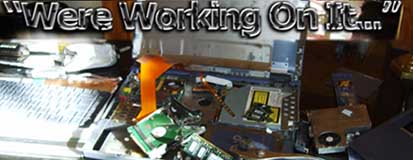It bears repeating:
Hardware compatibility is the trickiest part-mostly because it's difficult to get definitive answers on what works best with what. It's also a "make or break" factor... very important!
But the rest is easy. If you can change the batteries in, say, a camera without breaking it, you can probably build a PC.

I've built two, and when I built my first I was "too old to learn new tricks" and a very green computer user. Made a mistake on the first graphics card, but it wasn't an expensive one.

Also needed more RAM initially. In the end, the only setback was that initial disappointment in performance.
That machine is still plugging away, working very nicely, hardware-wise.
Only general advice I'll give, other than take your time researching, is to plan ahead for upgrades, getting more than you need where you can afford it. Power supplies, case size, that sort of thing.
And don't worry about whether or not your design is going to impress anyone- by the time you choose your parts, get them, build the machine, install the 'OS and other software, and get it tweaked out, it will be hopelessly obsolete by industry standards.

all that matters is that it's good enough for your needs, within your budget.












 I've built 3 PCs since then and all of them have worked just fine.
I've built 3 PCs since then and all of them have worked just fine.



 Ramos
Ramos







 Also needed more RAM initially. In the end, the only setback was that initial disappointment in performance.
Also needed more RAM initially. In the end, the only setback was that initial disappointment in performance.

